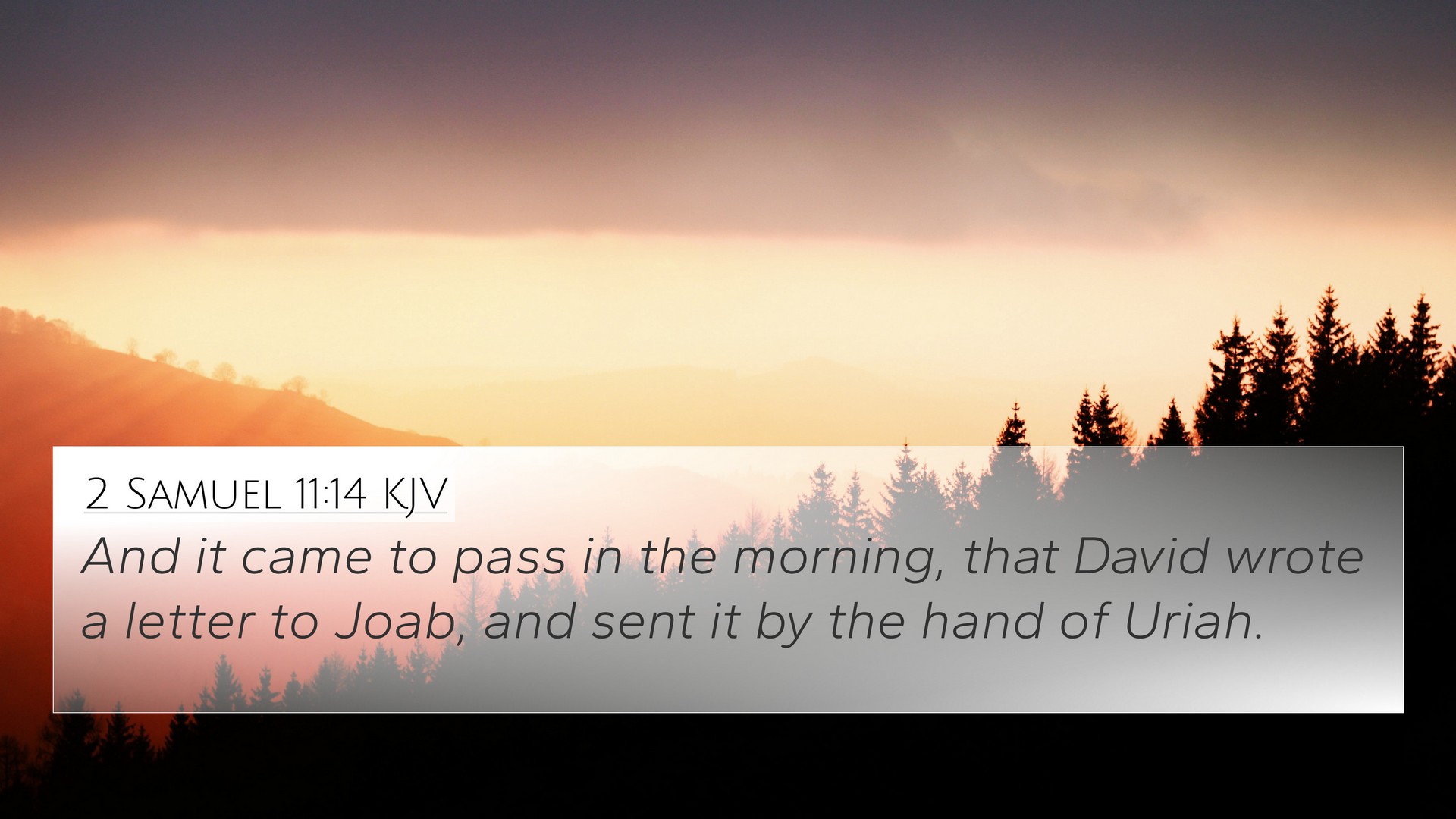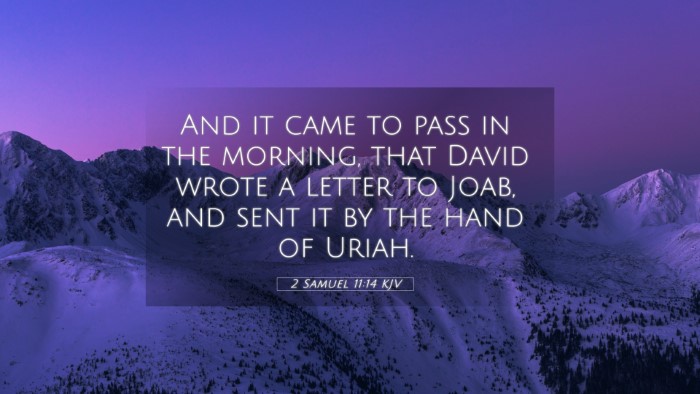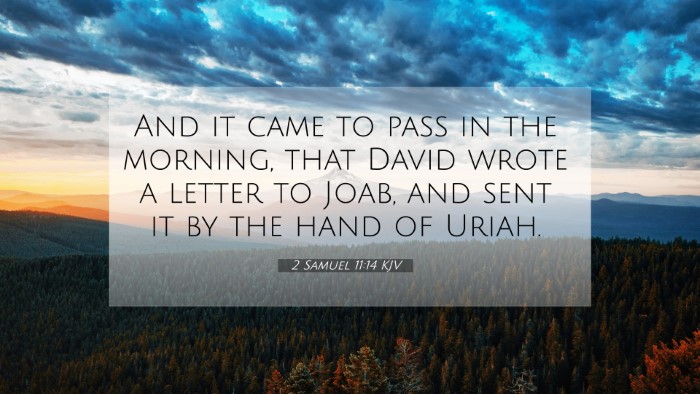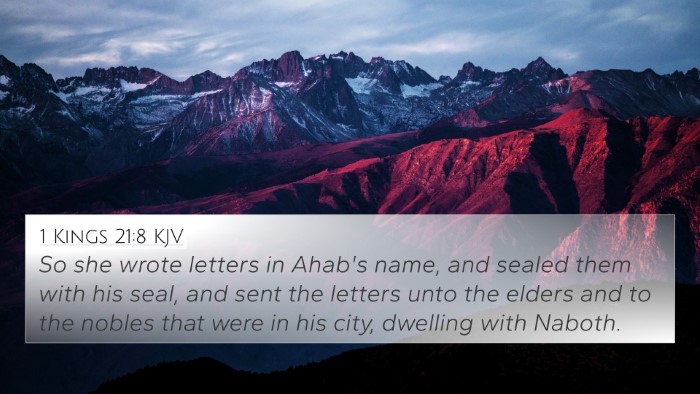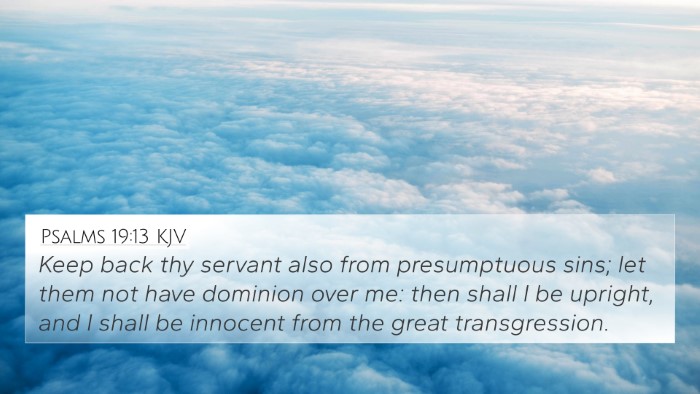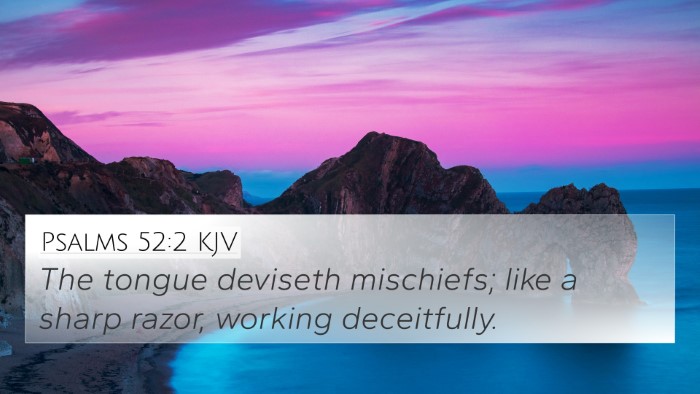Understanding 2 Samuel 11:14
Verse Text: "And it came to pass in the morning, that David wrote a letter to Joab, and sent it by the hand of Uriah." (2 Samuel 11:14)
This verse is a pivotal moment in the narrative surrounding King David, emphasizing themes of betrayal, moral failure, and the consequences of sin. Below, we delve into a combined interpretation based on insights from Matthew Henry, Albert Barnes, and Adam Clarke.
Contextual Background
David, having committed adultery with Bathsheba, struggles with the weight of his actions as he seeks to cover up his sin. The sending of Uriah back to the battlefield with a letter containing his death warrant indicates a premeditated decision by David, revealing the depths of his moral decline.
Thematic Insights
-
Betrayal and Trust:
Uriah, who displays loyalty and honor, is tragically used as a pawn in David's scheme. This illustrates the painful reality of betrayal in human relationships.
-
Moral Decline:
David’s actions lead the reader to reflect on the nature of sin and its far-reaching implications. Initially, David's sin starts with lust and ultimately spirals into murder.
-
Consequence of Actions:
The careful orchestration of Uriah’s death foreshadows the severe repercussions David will face personally and as king, which are explored in the later chapters of 2 Samuel.
Cross-References
Several Bible verses relate to 2 Samuel 11:14, which helps in understanding the broader narrative and themes:
- 1 Samuel 15:23: "For rebellion is as the sin of witchcraft..." - A reminder of God's displeasure with sin.
- Psalm 51:3: "For I know my transgressions, and my sin is ever before me." - David's acknowledgment of his sin.
- 2 Samuel 12:9: "Wherefore hast thou despised the commandment of the Lord..." - The prophet Nathan’s confrontation with David regarding his sin.
- Matthew 5:28: "But I say unto you, That whosoever looketh on a woman to lust after her hath committed adultery with her already in his heart." - Jesus' teaching on internal sin.
- Galatians 6:7: "Be not deceived; God is not mocked: for whatsoever a man soweth, that shall he also reap." - Highlighting the natural consequences of sin.
- Proverbs 6:32: "But whoso committeth adultery with a woman lacketh understanding..." - Warns against the foolishness of adultery.
- Hebrews 4:13: "Neither is there any creature that is not manifest in his sight..." - God's omniscience and the revelation of concealed sins.
- James 1:15: "Then when lust hath conceived, it bringeth forth sin..." - Illustrates the progression from desire to sin to death.
- 2 Samuel 23:39: "Uriah the Hittite" - A reminder of Uriah's loyalty and tragic end.
- Isaiah 53:5: "But he was wounded for our transgressions..." - A prophetic allusion to sacrifice and the nature of redemption.
Conclusion
2 Samuel 11:14 serves as a sobering reminder of the complexity of human nature, the potential for moral failure, and the importance of accountability. By examining this verse in the context of its surrounding narrative and cross-referencing with related scriptures, we gain a more holistic understanding of sin and its consequences, as well as the hope for redemption found in God.
This analysis represents a comparative Bible verse analysis, linking profound insights across various scriptures, which can serve as valuable tools for anyone studying the Bible or preparing for sermons. As one engages further in cross-referencing Bible study methods, these themes emerge continually, demonstrating the interconnectedness of biblical texts.
For those who are interested in Bible verse connections or identifying specific themes throughout Scripture, this exploration highlights the value of engaged study and contemplation.
